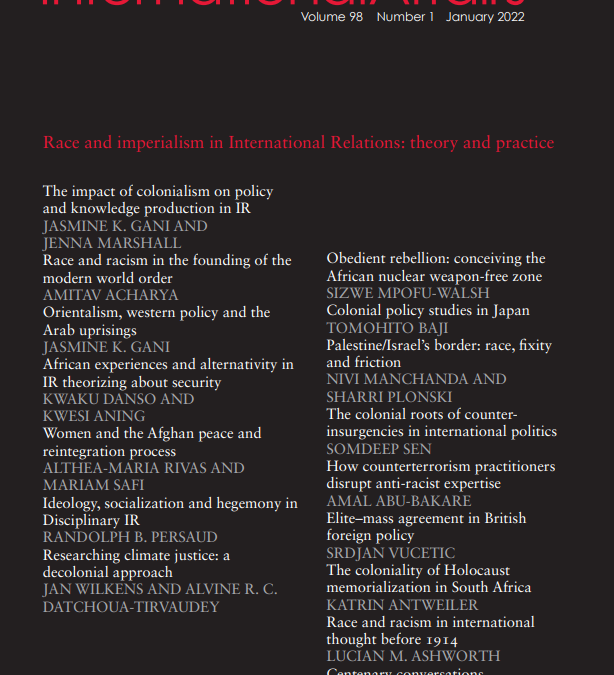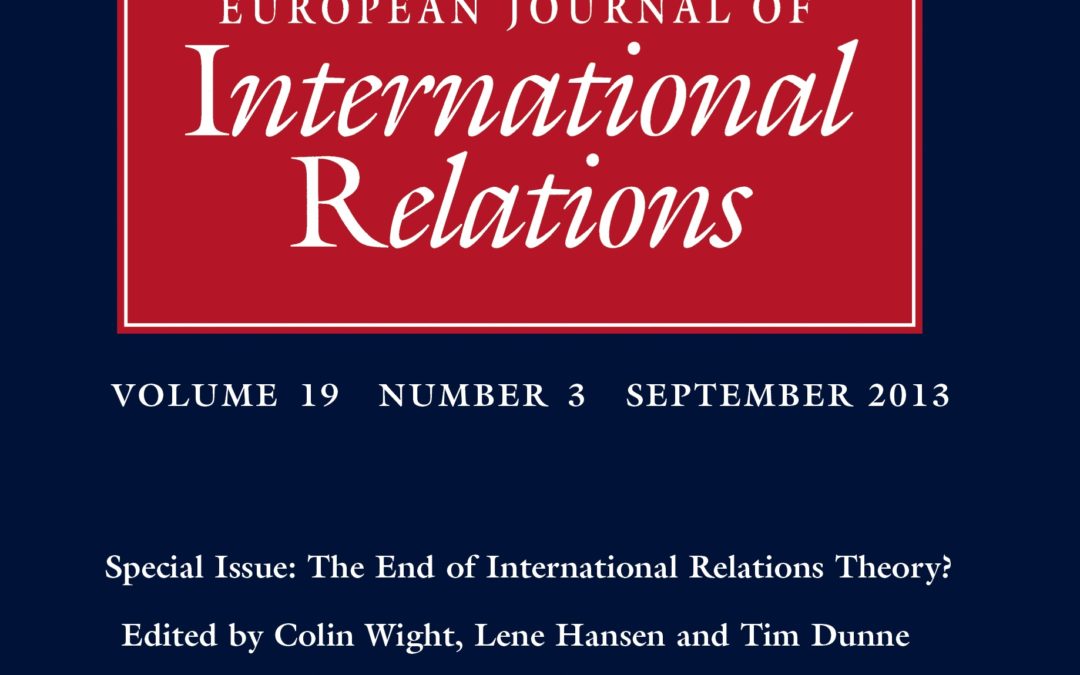Intra-elite, state-centric society is a strategic front, and ought to be defended and put to use in the continued development of a global and decolonial turn in IR.


Intra-elite, state-centric society is a strategic front, and ought to be defended and put to use in the continued development of a global and decolonial turn in IR.

Since 2014 the international community has considered the issue of autonomy in weapons systems under the framework of the United Nations (UN) Convention on Certain Conventional Weapons (CCW)....

At the 1939 World Fair in New York City, the big attraction was "Futurama," an exhibition put on by the U.S. car manufacturer General Motors. Every visitor to Futurama received a souvenir — a small...

In a world of multiple and overlapping crises, can norms and rules-based institution still create order amidst uncertainty? Do existing norms and frameworks for international cooperation enjoy sufficient legitimacy to help us navigate the interacting and concatenating effects of crises? A new symposium explores the question: “Whither norms (research) in times of uncertainty?”

From its very inception IR was a substantive normative and political project.

That was the apex of Dependency Theory in the US, I am betting. It wasn’t long before it was shelved in the curio cabinet. Dependency Theory had died from neglect, not from critique.

Other entries in the symposium--when available--may be reached via the "EJIR Special Issue Symposium" tag.Terms such as core and periphery (or third world) are largely passé, and may even be conceptually and heuristically objectionable on the grounds that they are rooted in dichotomous language that reproduces power differentials between diverse actors and sites around the world. However, core-periphery like logics similar to those described by world-system and dependency theory in the 1960s and 1970s are still operational in multiple spheres of (globalized) human activity, including...

Sylvester productively draws out the implications of the current ‘camp’ structure of IR: on the one hand, the proliferation of ‘camps’ and communities within IR increases the opportunities for publication and advancement for those whose work does not conform to traditional disciplinary norms; on the other hand, the emergence of camps with their own journals, books series, ISA/BISA sections and common citations productive dialogue across and between camps is difficult if not impossible. Sylvester also usefully points out that the camp system can end up with arrogant competitions within camps...

Editor's Note: This is a guest post by Christine Sylvester. It is the 19th installment in our "End of IR Theory" companion symposium for the special issue of the European Journal of International Relations. SAGE has temporarily ungated all of the articles in that issue. This post refers to Sylvester's article (PDF). A response, authored by Lauren Wilcox, will appear at 11am Eastern. Other entries in the symposium--when available--may be reached via the "EJIR Special Issue Symposium" tag. Other entries in the symposium--when available--may be reached via the "EJIR Special Issue Symposium"...

Editor's Note: This is a guest post by Milja Kurki. It is the 18th installment in our "End of IR Theory" companion symposium for the special issue of the European Journal of International Relations. SAGE has temporarily ungated all of the articles in that issue. This post refers to Reus-Smit's article (PDF). His post appeared earlier today. Other entries in the symposium--when available--may be reached via the "EJIR Special Issue Symposium" tag. Christian Reus-Smit’s latest intervention into the seemingly never-ending ‘meta-wars’ published in the long-awaited EJIR special issue on ‘end of...

Editor's Note: This is a guest post by Christian Reus-Smit. It is the 17th installment in our "End of IR Theory" companion symposium for the special issue of the European Journal of International Relations. SAGE has temporarily ungated all of the articles in that issue. This post refers to Reus-Smit's article (PDF). A response, authored by Milja Kurki, will appear at 11am Eastern. Other entries in the symposium--when available--may be reached via the "EJIR Special Issue Symposium" tag. Metatheory is out of fashion. If theory has a purpose, we are told, that purpose is the generation of...

Editor's Note: This is a guest post by Phil Arena. It is the 16th installment in our "End of IR Theory" companion symposium for the special issue of the European Journal of International Relations. SAGE has temporarily ungated all of the articles in that issue. This post refers to David A. Lake's article (PDF). His post appeared earlier today. Other entries in the symposium--when available--may be reached via the "EJIR Special Issue Symposium" tag. Lake's “Theory is dead, long live theory: The end of the Great Debates and the rise of eclecticism in International Relations” articulates well...